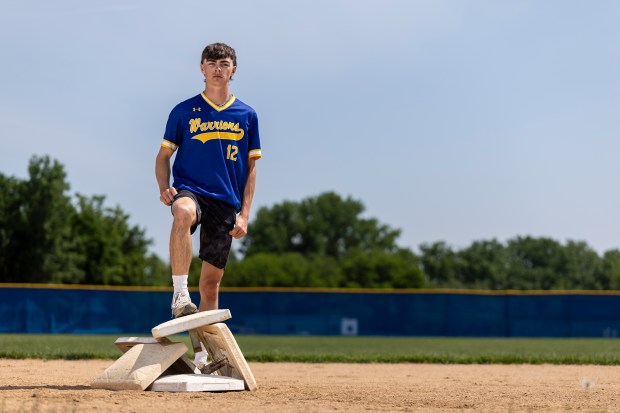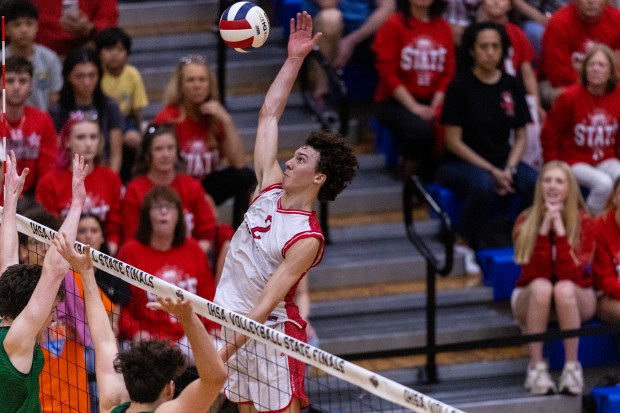Charges were dropped Tuesday against the one-time manager of a former off-the-books Gary strip club after the man died, filings show.
Anthony Kirkland, 40, of Gary, was charged with two low-level felonies and two misdemeanors.
An unrelated criminal case in November 2021 was also dropped — for allegedly shooting an ex-girlfriend in the arm.
His lawyer John Cantrell said he was found dead at home on June 5. Foul play was not suspected.
A tip about a Gary strip club allegedly serving booze shots without a liquor license led to the discovery that several dancers were offering sex acts in private rooms at Honey’s Private Gentleman’s Club, 8120 Melton Road, a criminal affidavit alleges.
Kirkland and Maria T. Dorsey, then 31, both of Gary, were charged in June 2022 with promoting prostitution, a Level 5 felony, maintaining a common nuisance, a Level 6 felony, unauthorized furnishing of an alcoholic beverage, and sale of an alcoholic beverage without a license, both class B misdemeanors.
Records show Dorsey’s case was also dismissed Tuesday.
Court documents portrayed Kirkland as the “owner” while Dorsey was an employee. However, state records show the business registered under a Chesterton man’s name.
The Post-Tribune is not identifying the latter man, because he was never charged in connection with the case.
An anonymous tipster told the Indiana State Excise Police on Dec. 13, 2021, that the club, 8120 Melton Road, was serving vodka cocktails without a license, which state records later confirmed, charges state.
However, during the course of their investigation, the focus shifted with various officers stating in a sworn affidavit that police went four times to the strip club — on Feb. 5, 2022, Feb. 18, 2022, March 4, 2022 and March 11, 2022.
On the Feb. 5 trip, one officer learned “anything goes” with a $150 private dance in a VIP room. Kirkland told them it was a “full-service gentleman’s club,” the affidavit states.
The two officers declined and left.
By March 4, an officer bought a $30 dance, but declined sex acts, the affidavit states.
The man paid for a second dance with another dancer named “Dream”, but their conversation “did not yield any additional information.” The second officer also paid for a dance and spoke with another woman before the two men left.
Officers returned for a fourth time on March 11, documents state. One agreed to pay a dancer $250 for a sex act, but none were “conducted,” according to the affidavit.
The club was raided that night.
During police interviews, several dancers or employees pointed to “TK” — or Kirkland — as the “owner”, documents state. The women said “different girls do different things”, while some dancers said they feared violent “retaliation” from him, charges state.
Whether sex acts were explicitly allowed “depended on who was working security”, one woman said.
That still raised questions — potentially for a jury — on why it was necessary for police to return so many times when they should have seen “once” what was going on, Cantrell said.
The situation was akin to undercover police who get sex acts from prostitutes, then arrest them, he argued.
It brought up another question on why the owner was never charged.
“Often, employees are punished for the misdeeds of other people,” Cantrell said.
Stephanie McFarland, a spokeswoman for the Indiana Excise Police, said evidence is required to show a pattern of behavior — rather than a single incident — to secure an arrest for promoting prostitution against the owner.
“The county prosecutor prefers such cases have three separate investigations to show a pattern of behavior and to establish a nexus between the criminal conduct and the licensed premises. This action also provides for more stringent protection, ultimately under the law, of the individuals promoted for prostitution by the owner,” she said.
“This protocol was applied in the case in question. Indiana Excise Police did not address the alcohol infraction on the initial visit due to the concern the owner was promoting prostitution, and Excise followed the procedure as outlined above to address the criminal activity,” McFarland added.
The club appeared to be a former Gainer Bank — or Gary State Bank — branch.




